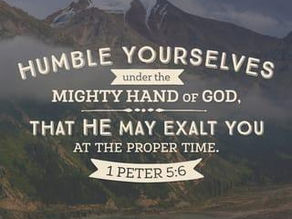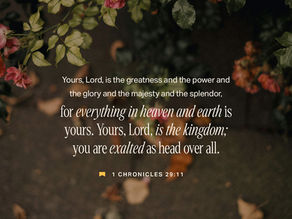1 Timothy 3:14-16 - No Creed But Christ?
- Chad Werkhoven
- Feb 17, 2023
- 3 min read
The world keeps trying to drive a wedge between Jesus and the Church. Don't fall for it!

Read / Listen
Read 1 Timothy 3:14-16
14 Although I hope to come to you soon, I am writing you these instructions so that, 15 if I am delayed, you will know how people ought to conduct themselves in God’s household, which is the church of the living God, the pillar and foundation of the truth. 16 Beyond all question, the mystery from which true godliness springs is great:
He appeared in the flesh,
was vindicated by the Spirit,
was seen by angels,
was preached among the nations,
was believed on in the world,
was taken up in glory.
Listen to passage & devotional:
Heidelberg Catechism Q&A 23
Q. What are these articles
of the Christian faith?
A. I believe in God, the Father almighty,
creator of heaven and earth.
I believe in Jesus Christ,
his only Son, our Lord,
who was conceived by the Holy Spirit
and born of the virgin Mary.
He suffered under Pontius Pilate,
was crucified, died, and was buried;
he descended to hell.
The third day he rose again from the dead.
He ascended to heaven
and is seated at the right hand of God the Father almighty.
From there he will come to judge the living and the dead.
I believe in the Holy Spirit,
the holy catholic church,
the communion of saints,
the forgiveness of sins,
the resurrection of the body,
and the life everlasting. Amen.
Summary
The letters that Paul wrote to Timothy and Titus are called the pastoral epistles, since Paul sent them to these two young pastors with instructions on how to build up and care for their local churches. This first letter to Timothy begins with instructions on how worship and how to identify men to lead the churches as elders and deacons.
But it's in the verses we read today, which is almost at the exact center of the letter, that Paul lays the foundation for the Church: the Church is built upon a creed.
A creed is a summary statement of the primary tenants of a particular belief system. There's a ton of theology packed into these two sentences:
The Church is the household of God, and since the Church's main task is to proclaim God's Word, it is the "pillar and foundation of the truth."
Jesus Christ is the source of all true godliness for those who are in Him;
God became incarnate, and the God-Man was given the stamp of approval by the Holy Spirit;
The message of the gospel of Jesus Christ is meant for the entire world;
Jesus has ascended to glory! This means that a Man is presently sitting at the right hand of God working out all things for His Church.
Dig Deeper
Most of us in this Bible reading plan are part of Reformed churches, and one of the distinctives of Reformed churches is a strong adherence to creeds and confessions. Confessions are slightly longer documents that summarize what we believe the Bible says about important topics. The Heidelberg Catechism, which we're also reading through this year, is an example of a confession. The Belgic Confession and the Canons of Dordt are the two other confessions Reformed churches subscribe to.
Many Presbyterians subscribe to the Westminster Standards, while some Lutherans hold to the Formula of Concord.
Confessions, for the most part, are products of the Protestant Reformation - tools used to articulate what the Bible actually teaches about core doctrines.
Creeds are much older than confessions. Adherence to creeds like the Apostle's Creed often is the determining factor as to whether a particular church can properly call itself Christian or not.
There have always been some, who look at all of the strife and division in the Church and trace it to these 'man made' creeds, and self righteously declare they have no creed but Christ, as if somehow their own personal interpretations of the Bible will be more pure than declarations that have passed centuries of examination.
It's true that the Apostle's Creed was written by men. We don't considered it to be inspired or give it the same authority we give to scripture.
But not only is every word and phrase of our creeds and confessions meticulously based in scripture, you can see from our passage today, which is just one of dozens of similar passages in the Bible, that's God's people have always expressed their core beliefs in the form of creeds (note the different formatting of v16 - Paul was likely quoting an early creedal hymn of the church).
Praise God for those who came before us and wrote the creeds to keep the Church centered on God's inerrant, infallible Word of Truth.
ACKNOWLEDGE WHO GOD IS: The Living God, who lives in His Church, the pillar and foundation of the truth.
ALIGN YOUR LIFE WITH GOD'S WILL: Pray that you will know and believe the core doctrines of Christianity well.
ASK GOD FOR WHAT YOU NEED:
Read the New Testament in a year, a chapter a day - Acts 19



















Comments